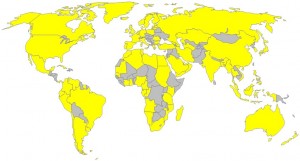Seabird populations under threat: an emergency in slow motion?
In March, Sea Alarm brought fifteen leading seabird experts from eight countries together in Hamburg to discuss marine emergencies involving seabirds.
In March, Sea Alarm brought fifteen leading seabird experts from eight countries together in Hamburg to discuss marine emergencies involving seabirds.
At its most recent meeting in, November 2017, the IOPC Funds Assembly granted Sea Alarm’s request for observer status in the convention.
Sea Alarm was invited by the Russian branch of the United Nations Development Programme (UNDP) to assist with a unique project that aims to protect the Arctic environment against the effects of oil pollution.
As of October 2017, the leadership of a five-year (2017-2022) oiled wildlife programme has been contracted to Sea Alarm.
In November, Sea Alarm ran a successful workshop in Barcelona on marine emergencies involving sea turtles.
We are proud to announce that IPIECA/IOGP have just released a new publication, Key principles for the protection, care and rehabilitation of oiled wildlife.
During 2017 considerable further progress has been made in the Beta-phase of the GOWRS (Global Oiled Wildlife Response System) project.

Sea Alarm is very pleased to announce that it has completed and published its 100th Country Wildlife Response Profile. To responders and response planners, these Profiles are broadly respected and often a crucial source of information on each country’s apparent capacity to deal with an oiled wildlife incident.